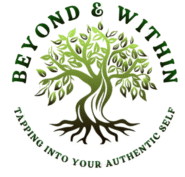Are you mentally overwhelmed or out of shape due to stress or life challenges? You think constantly, are stuck in a rut, and are always taking care of everyone else but yourself. In a world where you are continually taught and conditioned to put other people’s interests but yours, you wonder how do I get to take care of myself? You jot down what you should do but rarely follow it.

What can you do to keep your vision clear and your nervous system intact and keep you whole as a person? Remember, stress attacks the nervous system and can predispose you to autoimmune diseases. Akin to keeping fit physically by exercising and having a healthy diet, so is Self-care for your Fundamental being emotionally, mentally, spiritually, and socially. There are four critical self-care practices.
1. Resourcing
One of the core self-regulation strategies that comes in handy is resourcing. Moreover, it is a strategy or an action that can be fully adopted in adverse circumstances. You are not immune to life challenges; once in a while, you will face challenges or life stresses. The only way to ensure you don’t succumb or become dysregulated is by practicing resourcing.

Resources make you resilient by allowing you to bounce back from adversity. Inside of trauma work, this is one of the biggest paradigm shifts in EMDR therapy. Borrowing this concept from EMDR, for you to work through life challenges skillfully, you need to have a sense of what gives you resilience. The question to ponder is, what works for you? To support with what is overwhelming or stressful.
2. Journaling
Journaling is the way to get your mind and heart off life pressures. In addition, it formalizes your thoughts, actions, and feelings, giving you more clarity where confusion breeds. The questions to ask are: what are you feeling? What do you want? Who are you? There is no particular formula to journal. Allow yourself to write what flows through your mind and write without fear of judgment.

Journaling is a powerful self-care practice that encourages self-reflection and emotional release. The beauty is that it doesn’t require a significant time commitment; even 5 to 10 minutes a day can provide benefits. This is consistent, as regular journaling deepens self-awareness, improves emotional regulation, and strengthens one’s ability to cope with stress.
3. Breathing
The most accessible and effective self-care practice is breathing. How you breathe can directly influence your mental and physical state, helping you reduce stress, improve focus, and regulate your emotions. Examples of some ways you can incorporate breathing as self-care include
- Mindful breathing
- Deep Belly Breathing
- 4-7-8 breathing for relaxation
- Alternate Nostril Breathing
These breathing exercises can be done almost anywhere and are a powerful way to manage stress and recharge.
4. Physical Activity
Regular movements can relieve stress, elevate mood, improve energy levels, and promote better sleep. Exercise releases endorphins, the body’s ‘feel-good hormones, which can help reduce feelings of anxiety and depression. Taking a short, brisk walk or a few minutes of activity can make a noticeable difference in your mood. Physical activity is one of the most holistic forms of self-care, offering benefits beyond the body and nourishing your overall well-being.

Conclusion
Incorporating self-care into your daily routine invests in your long-term health, happiness, and resilience. You build a foundation of balance and well-being by making time for practices that nourish your mind and spirit- whether through mindful breathing, journaling, resourcing, or physical activity. Self-care is not a one-size-fits-all approach; it’s about finding what works for you and committing to small, consistent actions that support your needs. In a world that often demands more than you can give, self-care empowers you to stay grounded, focused, and better equipped to handle life challenges. Embrace self-care as a vital part of your journey to a healthier, more fulfilled life.


I love the resourcing technique. It’s very effective
Just wanted to say, your article is fantastic! The clarity and insights are amazing. With your permission, I’d love to subscribe to stay updated with future posts. Keep up the great work!